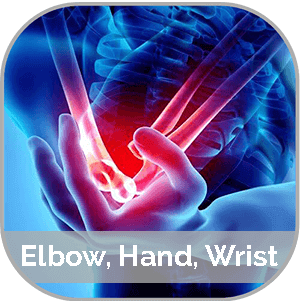 The carpal tunnel is a passageway located in the wrist that protects a major nerve. Most commonly associated with individuals who perform repetitive motions, such as typing, carpal tunnel syndrome occurs as a result of the main nerve becoming compressed or pinched.
The carpal tunnel is a passageway located in the wrist that protects a major nerve. Most commonly associated with individuals who perform repetitive motions, such as typing, carpal tunnel syndrome occurs as a result of the main nerve becoming compressed or pinched.
Typists aren’t the only ones affected; this condition can also affect you if you’re pregnant, obese, or diabetic, as well as if you have certain anatomic indicators (such as a smaller than average carpal tunnel or a previous fracture to the area). Symptoms typically present as numbness, discomfort, tingling, and eventually weakness in your wrist and arm. While the side effects can be debilitating, our board-certified orthopaedic surgeons typically can treat carpal tunnel syndrome with non-surgical methods, often providing significant functional improvement and substantial pain relief.
If you have additional questions about carpal tunnel syndrome and the available treatment options, or if you would like to schedule a consultation with one of our skilled orthopaedic surgeons, please contact us today.
Non-Surgical Treatment Options for Carpal Tunnel Syndrome
If you believe you may have carpal tunnel syndrome, you should schedule a consultation with an experienced specialist as soon as possible. Mild symptoms often can be addressed by taking frequent breaks to rest your hands or using cold compresses to reduce swelling and discomfort. If your symptoms don’t fade within a few weeks, however, our skilled surgeons can provide a number of non-surgical treatments to help alleviate your pain, such as wrist splinting, steroids, physical therapy, medication, and other conservative options. These approaches will be most effective within the first 10 months of experiencing side effects of carpal tunnel syndrome.
Surgical Options for Carpal Tunnel Syndrome
Carpal tunnel syndrome can worsen with time, and if your symptoms are severely debilitating, or if minimally invasive treatment offers little or no relief, our extensively trained orthopaedic hand specialists may recommend surgery to address your concerns. Trained in the latest minimally invasive techniques, our surgeons can help to restore functionality and minimize pain by increasing the size of the space in the carpal tunnel. Using endoscopic techniques we can often reduce downtime and the risk of complications while typically providing an excellent result. Depending on the extent of the condition, your symptoms may not completely disappear following surgery; however, our methods are designed to achieve the best outcome possible.




